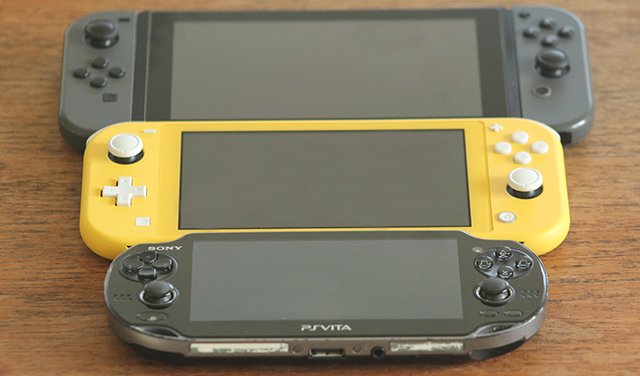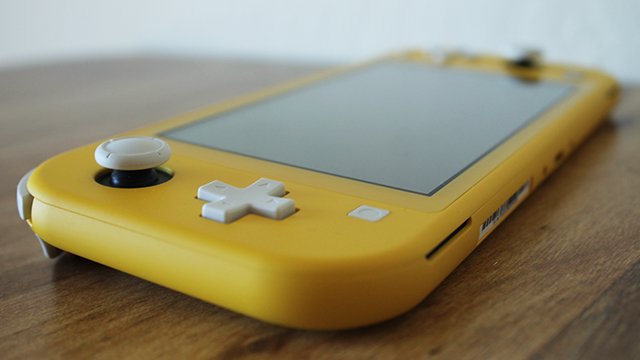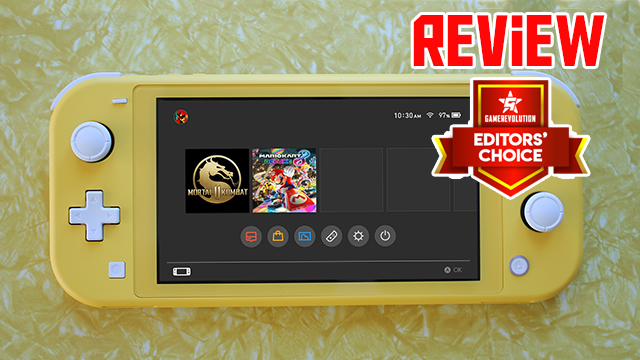Nintendo has frequently been the console maker to make more hardware iterations than necessary. It’s easy to get lost among all the 3DS releases alone and now it’s about time for the Switch to get the refresh treatment via the Switch Lite. And although it lacks the ability to, well, switch forms, it surpasses most other budget consoles by being a fantastic redux that can appeal beyond the expected market of children and those looking to pinch pennies.
That’s not typically the sentiment behind these pared-down consoles. The cheap 2DS was difficult to recommend to those who wanted an actual 3DS because of its shape and the expensive PSP Go was hard to suggest to others because it was a pricey PSP. They’re usually meant to capture some segment of its potential audience without having much overlap with the system’s existing appeal. Both of those aforementioned examples were made for someone, but those people were extreme outliers.
ALSO: Best Nintendo Switch Lite Cases | Screen protectors, carrying cases, shells and accessories
The Switch Lite’s cheaper price point positions it as a device aimed for kids and more casual fans, but its feature set isn’t. The $100 you save buying a Lite doesn’t mean it feels cheaper, as it is still a sturdy hunk of plastic, which is partly helped by its design. It’s shorter both vertically and horizontally but not flimsy and this slim form factor is, excuse the pun, light enough to keep your hands from getting tired. The .27 lbs difference may not sound like but a portable system like this greatly benefits from that shaved weight.
Some of this lost weight is because it can’t rumble. Nintendo’s much-discussed HD Rumble motors are gone with nothing to replace them. Rumble is a decent feature on other systems and makes sense for a console, but neither Sony nor Nintendo’s handhelds have ever had it, so it isn’t too earth-shattering that the Lite is rumble-free. The Joy-Cons that usually hold the rumble aren’t as much Joy-Cons in this case as they are attached to the system at its core. While some launch or launch-era Switches may be starting to crumble in some ways like having loose Joy-Cons and faulty kickstands, the Switch Lite is going to be far less prone to that since nothing is removable. Granted, if your analog stick drifts (which is still present in the Lite), you’ll have to send the whole device in but the all-in-one-package is aesthetically pleasing and functional, despite losing some of those functions.
Switch Lite Review | A portable that shames other portables

This setup obviously means that the Switch Lite is exclusively positioned as a portable device. It literally does not even fit into a Switch dock because of its smaller size nor does it even have the internals to output to a television. And since it does not have a kickstand, you’re stuck with playing in handheld mode and looking at its lovely but slightly smaller still-720p screen (it’s .7 inches smaller than the other Switch’s screen and .5 inches bigger than the Vita’s screen).
But “stuck” implies more of a negative than it actually is. The handheld shows the system in the best light since it focuses it on what it does best. Nintendo revealed back in 2017 that 30% of people primarily played it in handheld mode, as opposed to the less than 20% who primarily played docked, which shows the appeal of it as a handheld-first machine. Games even look less dated on the Lite since they aren’t given the chance to blow up and look comparatively uglier than their PS4, Xbox One, or PC counterparts. Fewer options are inevitably going to turn some people off, especially those who love playing on the TV, but this pivot to portability ends up bringing out the best in the system and smoothing over some of its flaws. Forfeiting television play might be difficult in some scenarios but it’s not what this system is for. You also won’t be able to play some games like Super Mario Party or any Labo titles and others will be hamstrung like Arms, but the list is small and relatively minor.
While most of its guts are basically just from the regular Switch, it does have some slight improvements. The internal battery is physically smaller but it is also more efficient. Its life also sits between the old Switch and new, longer-lasting Switches that rolled out in August 2019. During our tests, it took around 14 minutes of playing Breath of the Wild to drain a launch-era Switch down 10% while it took almost 19 minutes to do the same on the Lite, which is almost directly in line with what Nintendo states on its website. You’ll likely be draining its juice even more since you can’t charge on the dock it doesn’t have, but it lasts long enough to get the job done and support a couple lengthy sessions. It’s still slow to charge to full capacity, but, given its smaller size, does fill up faster than the other models (about two hours and 15 minutes as opposed to the three or so hours for the other two Switches).
Switch Lite Review | Being in control

Regardless of how long you play, you will almost always be playing with the same buttons due to the aforementioned built-in controller. They all feel relatively the same but the D-pad is an actual D-pad this time as opposed to four, small circular buttons masquerading as a D-pad. While not the best D-pad around because of its tiny size and lack of a satisfying Vita-esque click, it is more natural to have on a controller given the cross’ storied, familiar legacy. Fighting games and platformers feel a little more natural on it and more easily sell that this is a big Game Boy for the modern day in a way that four smaller buttons didn’t quite do. Just be warned that diagonals are a little harder to hit consistently on the tiny, one-button D-pad.
The Switch Lite does run into some issues regarding controllers and multiplayer. While it can be a bit of a hassle to set up due to its poor tutorials, it’s possible to use the Pro Controller and separate Joy-Cons with the Lite for both multiplayer and single-player games. It’s a welcome option for both modes even if multiplayer is a little harder to do because of its lack of a kickstand. Nothing is stopping you from plopping it on a flat surface and looking down or propping it against a book, but the system doesn’t give you a helping hand in regards to playing local multiplayer or playing alone with a paired controller.
However, it doesn’t seem possible to use the actual built-in controls as the first player during multiplayer. Essentially, you’ll need two other controllers to play multiplayer on it despite it having the unused buttons sitting right there on the pad. Peeking over someone holding the system to play together isn’t ideal but it’s better than nothing and lets users get away with one less controller. Nintendo maybe doesn’t want players holding the handheld to cheekily turn it away from their opponent, but that’s a small price to pay for something that should be included.
These small setbacks point out the most obvious question in regards to the Switch Lite: Is a Switch still a Switch if it can’t switch? And despite a lower price that might say otherwise, it not only is still a Switch but perhaps a more honest version of it. By proxy of the removal of some features, the console’s signature trait was its portable nature. And the Switch Lite confidently focuses on that identity by stripping it down to the essentials and making a lighter, sleeker gaming system. Losing the ability to play on the TV and the obtuse multiplayer setups might not always be convenient, but it makes up that convenience with its more attractive form factor that keeps the system’s soul intact. And it’s probably the only console to do that and give its bigger model a real run for its money while costing less of it.
Nintendo provided GameRevolution with a Switch Lite for this review.







